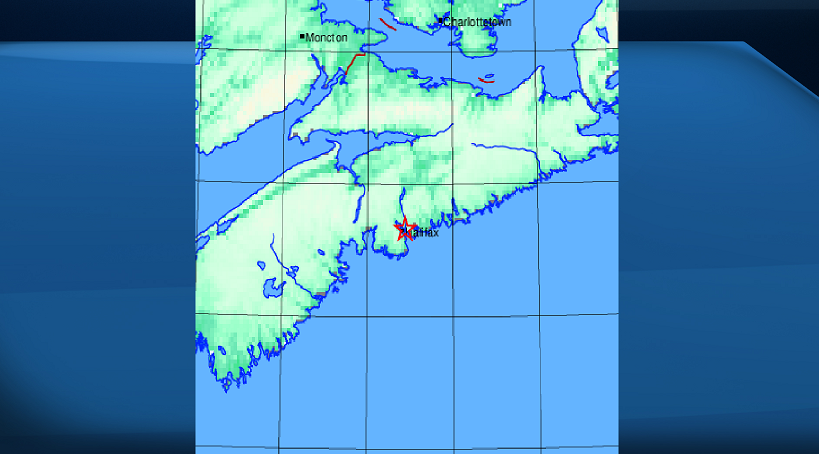Dartmouth was hit with a minor 2.6 magnitude earthquake Sunday evening, with several residents reporting their homes shaking and hearing an “extremely loud noise.”

According to Earthquakes Canada, most earthquake damage is caused by the ground shaking. There is no kind of threshold for feeling an earthquake, it’s all a matter of how close you are.
Nick Ackerley, a seismologist for Natural Resources Canada, says earthquakes may produce seismic waves when travelling through solid rock, which can create loud sounds.
“When those seismic waves reach the surface, they directly shake the air and that makes sound,” Ackerley said. “So it’s quite normal, especially when you are quite close to an earthquake and especially when that earthquake is shallow, to hear as well as feel the earthquake.”
READ MORE: Magnitude 2.6 earthquake hits Dartmouth neighbourhood

Get daily National news
According to Ackerley, Halifax isn’t in a region that’s known for its earthquakes. That’s because the city is quite far from the edges of any tectonic plates that might be rubbing together.
Halifax is a high seismicity region, however, this kind of event is an important reminder that we do get earthquakes in the region, he said.
“They go way back in the historical record and we are going to keep having them,” he said. “The next one could be bigger, so we need to be prepared.”
Ackerley adds Earthquakes Canada does have advice when an earthquake is suspected.
“If you start feeling really big shaking, you drop to the floor, you cover yourself by getting under some kind of sturdy object and you wait until the shaking stops.”

Earthquakes Canada released a “Did you feel it” survey after Sunday night’s quake, and according to Ackerley, over 400 people have responded. Ackerley thanks everyone who has responded and says the feedback has helped them in two ways.
One is they can better understand where the earthquake was because their seismograph is fairly sparse, and second, it helps them understand reports in stories they find in old newspapers that described earthquakes before seismographs existed, which is very useful in their research, Ackerley said.
Police say there were no reported injuries or damage to property as a result of Sunday’s earthquake.
With files from Graeme Benjamin.
- ‘Alarming trend’ of more international students claiming asylum: minister
- TD Bank moves to seize home of Russian-Canadian jailed for smuggling tech to Kremlin
- Why B.C. election could serve as a ‘trial run’ for next federal campaign
- Justin Trudeau headed to UN Summit of the Future amid international instability







Comments